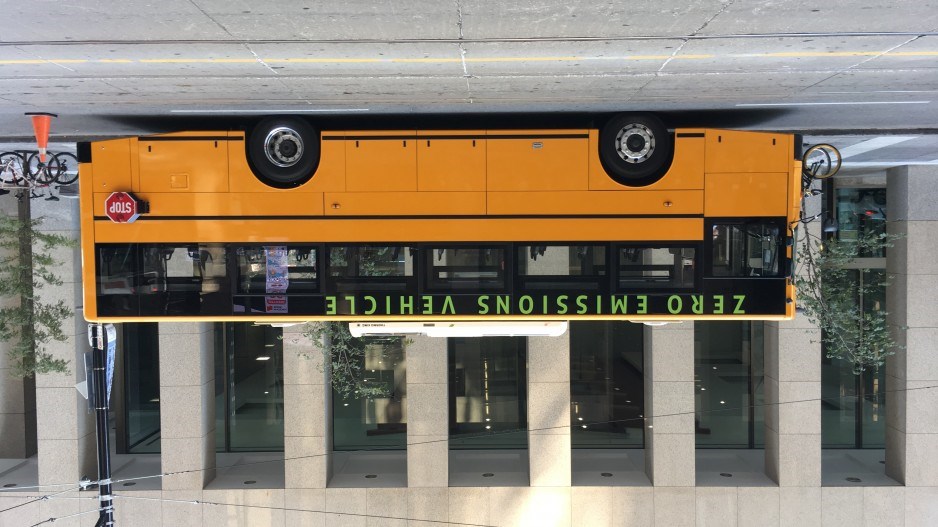Like a crash-test dummy hitting a car windshield, Volkswagen’s pervasive cheating on diesel emissions tests left drivers blindsided by their purchases.
And with the German automaker due to make reparations of US$2.3 billion in the U.S. market, one B.C.-based green technology company expects to benefit from the fallout of the emissions scandal.
In early October, GreenPower Motor Co. Inc. (TSX-V:GPV) revealed it was betting big on producing what it calls the world’s first purpose-built all-electric school buses.
“A while back we reached out to a number of the [American] states to talk to them about what they may want to do with the VW mitigation funds,” GreenPower chairman Fraser Atkinson told Business in Vancouver.
The talks revealed that by next year, electric-vehicle producers should be expecting an “explosion” of investments in all-electric buses, according to Atkinson.
The key revelation was that state governments singled out separate interest in school buses, transit buses and community buses.
Seeing a gap in school buses, GreenPower developed the new electric vehicles, recognizable for not just the distinct yellow sidings but floors higher off the ground than on transit buses.
In 2015, GreenPower sold two all-electric buses to California school bus operator Adomani for US$450,000.
To date, the company has purchase commitments from 11 schools in Southern California.
“Not a bad start,” said Atkinson, adding that GreenPower is also delivering the first two of 10 transit buses to California’s SM Transit by year’s end.
Meanwhile, another B.C.-based electric-vehicle company is ramping up production capacity.
Electra Meccanica Vehicles Corp. (OTCQB:ECCTF) announced in early October that it’s signed a deal with China’s Zongshen Industrial Group Co. Ltd. to produce 75,000 single-passenger Solo vehicles over the next three years.
Electra Meccanica’s current production capacity is between two and 10 vehicles per month. The deal with Zongshen will allow it to deliver 5,000 vehicles to customers by the end of 2018.
Ted Dowling, BYD Heavy Industries’ regional vice-president in Victoria, said his Chinese company has delivered 25,000 electric buses around the globe; 17,000 of those deliveries were made in 2017 alone.
Dowling said his company is focusing more on transit buses as most of his clients that are interested in reducing emissions want to maximize the environmental impact.
“School buses don’t really have a very big environmental impact because they operate in the morning and then the afternoon, and that’s pretty much it,” he said.
“We find a [diesel] school bus is very inexpensive, so adding another $100,000 worth of batteries onto that, we find that they [potential clients] kind of walk away from it.”
He said BYD is getting stronger interest in B.C. from transit authorities, though.
“They’re not the ones who are going to be the first to do it, but they’re going to be the first to follow quickly.”
Dowling acknowledged that the electric buses cost 35% more than the average price for a diesel bus, but it’s all made up within 2.5 years due to lower maintenance and energy costs.
“That’s kind of a hidden secret,” Dowling said.
@reporton



